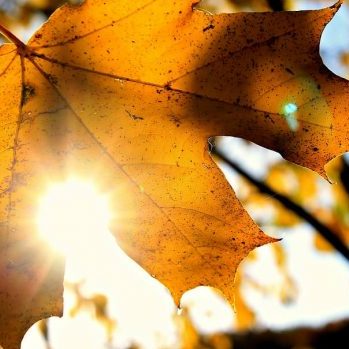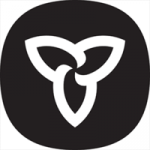As Trump targets education, Canadian universities seeing surge in American applicants
A number of universities across the country are reporting a rise in interest and applications from American students.
Updated April 21, 2025 at 7:42 a.m.
April 17, 2025
The University of British Columbia reports a 27 per cent surge in American students applying to graduate programs at the Vancouver campus for the fall 2025 academic year.
Johnathan Hayward/The Canadian Press file photo
By Asma SahebzadaStaff Reporter
Universities across the country are reporting a rise in applications and interest from American students wanting to study in Canada while the Trump administration freezes grants to universities and terminates the legal status of international students.
The University of British Columbia said its Vancouver campus has seen a 27 per cent increase in American citizens applying to graduate programs for the academic year starting this fall. This number has been calculated as of March 1 and is a comparison to the applications received from U.S. citizens at this time last year. However, some graduate programs are still receiving applications from students for the fall term.
Select UBC graduate programs have reopened applications for Americans for the coming school year after the university launched ”U.S. Applicant Week,” which allows for additional American student applications to be submitted to about 75 programs across seven faculties, from April 14-18.
UBC’s provost and vice-president academic, Gage Averill, said the applicant week was driven by interest expressed by prospective students.
For undergraduate programs, Averill said UBC has only seen a two per cent increase of applications from U.S. students compared to last year. (The undergrad application deadline was in January, before Donald Trump’s inauguration.) He said UBC’s acceptances for the coming academic year from U.S. undergrads have doubled, with about 155 acceptances from Americans, compared to 75 during this point last year.
Averill says it’s too early to determine through data if the rise in U.S. students applying to UBC is entirely due to political turmoil south of the border, but he said it’s “indisputable” that the recent surge is in part tied to American politics.
The university has also reported a 20 per cent rise in campus tour attendance by U.S. students between Feb. 1 and March 31 relative to the previous year.
Elsewhere in B.C., Simon Fraser University’s Faculty of Graduate Studies saw an increase in applications from U.S. citizens of more than 23 per cent compared to last year. Like UBC, SFU has reopened select graduate programs between April 16-25, with a target audience of Canadians as well as American students looking to study outside the U.S.
A spokesperson for the University of Waterloo also cited more foot traffic on campus from American visitors in recent months and a 15 per cent boost in web traffic originating from the U.S. since September. Additionally, Waterloo’s engineering department has seen “increased interest and applications from potential students” over the past year from the U.S.
Universities here have also seen a surge in interest from Canadian students south of the border.
Michelle Donovan, the associate director of media relations at McMaster University, said the institution has received about 16 per cent more applications from Canadian undergrads living and studying in the U.S. Donovan said the university “cannot confirm if the increase is related to the political situation.”
Although application deadlines for universities vary by program — with competitive programs closing earlier in the year — and while some program applications remain open, a number of other Canadian universities have already seen more American students showing interest and looking northward to pursue their studies.
In a statement , McGill University confirmed bachelor applicants from U.S. high schools looking to study at the university for the 2025-2026 academic year are up by about three per cent, compared to the same period last year.
American citizens account for 30 per cent of all international bachelor’s students at McGill. While the university has seen an uptick in interest from American bachelor’s applicants, it said the number of students applying to master’s and doctoral programs from U.S. universities remains stable.
The University of Toronto has also seen a jump in applications from American students for the coming school year. A spokesperson wouldn’t specify the numbers and didn’t provide a reason the school is “seeing a meaningful increase” in U.S. applications over recent years.
According to the university’s statistics, in the 2023-24 academic year (fall to spring) 1,315 American students were enrolled at the school out of 29,547 international students, including graduate and undergraduate studies.
The interest from U.S. students looking north underscores the academic uncertainty as the Trump administration pulls federal funding, rolls back DEI programs, cracks down on immigration and pushes to dismantle the U.S. Department of Education. This week, Harvard University defied Trump’s demands to restrict activism on campus, risking more than $2.2 billion (U.S.) in federal grants and $60 million in contracts.
Averill said UBC is conscious of “not wanting to do any more damage to U.S. schools than has been done to them,” but empowering students who face education uncertainty is important.
“These are our sister institutions and we support them in their right to be autonomous and to make academic decisions, but I think we want to make sure that we’re also taking care of students who are seeing their aspirations not coming about in the U.S. and need other options.”
Asma Sahebzada is a Toronto-based general assignment reporter for the Star. Reach her via email: asahebzada@thestar.ca








